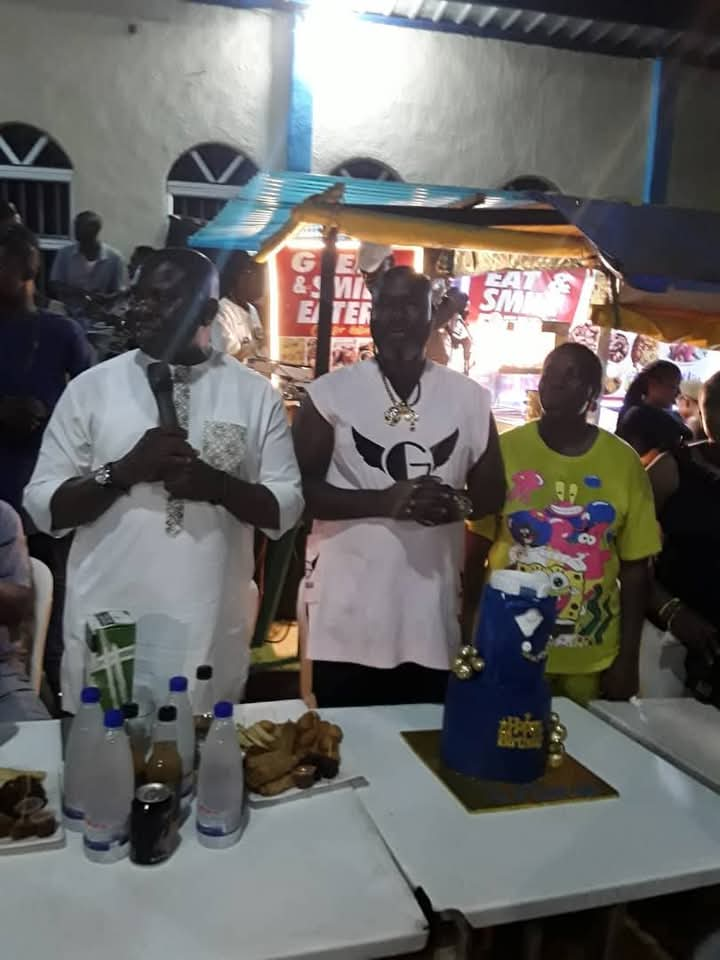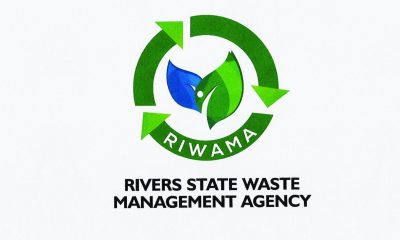Niger Delta
Oil Spill: A’Ibom Consumers Shun Fresh Fish
Restaurateurs and sea food dealers in coastal communities in Akwa Ibom say the recent oil spillage in the area has affected the consumption of fresh fish by the people.
They attributed the development to fear among the people over the possibility of buying fish poisoned by spilled crude.
The Tide’s source reports that the fear among the people arose from the May 1 oil spillage from the Qua Iboe Oil Fields, which polluted water in the communities.
Mobil Producing Nigeria (MPN), a subsidiary of U.S. Oil firm, ExxonMobil, had, in a statement signed by its Executive Director, Mrs Gloria Essien-Danner, confirmed that oil was leaking from the company’s pipeline.
The leakage discharged crude into the Atlantic Ocean and polluted the water and coastal settlements in the predominantly fishing communities in Akwa Ibom and neighbouring Cross River.
A source in Eket, Ibeno and Onna local government Areas, situated along the Atlantic shoreline, revealed that the people had shunned fresh fish since the spill was reported.
Obong Nathaniel Oduneyie, the Clan Head of Eket Afaha in Eket local government area, said oil spills were detrimental to fishing and public health.
“I love fresh fish a lot but I discovered that the ones bought and prepared for me recently tasted awful, apparently contaminated by the spill,” he said.
Mrs Elsie Akpan, a restaurateur in Esit Eket, told the source that her customers now preferred meat to fish because of the fear of eating contaminated fish.
According to her, I used to have many customers for fresh fish pepper soup and, in fact, that is my specialty in preparation but since the oil spill, people have withdrawn from eating the pepper soup.
“It has affected my business adversely as I hardly have any customer come for the delicacy these days,” Akpan said.
A dealer in frozen fish and sea food in Ibeno, Mrs Regina Nsopikpo, decried the oil spills and noted that the occurrence had become frequent “and has made people reluctant to eat fish”.
“We no longer make sales because people are avoiding fish. In fact, fishermen no longer go to sea to fish. The fish we sell now are from trawlers which operate outside Nigerian waters”.
“Oil operations in this area are really affecting our business negatively and that was why women joined the youths to protest the frequent oil spills.
“Even at that, Mobil has not considered paying compensation for any of the past spills to reduce the suffering of fishermen in the host community,” Nsopiko said.
Rev. Samuel Ayadi, Akwa Ibom Chairman of Artisan Fishermen Association of Nigeria (ARFAN), in a reaction to the development, advised fishermen in the area to withdraw from sea immediately.
“We have ordered our members to pull out until the ongoing clean up of the spill is completed,” he said but added that it was difficult to control fishermen, who were not members of ARFAN.
“I can say that our members numbering not less than 6,000 have complied with the directive to stay away from fishing in the meantime,” Ayadi said.
The Tide’s source recalls that coastal communities near the 960,000 barrels-per-day Qua Iboe Oil Export Terminal operated by MPN in Ibeno, have experienced oil spillages on three occasions in six months, namely December 4, 2009, March 24, and May 1.
Niger Delta
Bipi Celebrates Gen Asabuja On Birthday

The Rivers State Commissioner for Urban Development and Physical Planning, Rt Hon Evans Bipi, has eulogised Gen Gabriel Asabuja over his recent birthday celebration in Port Harcourt.
Bipi said Asabuja is worth celebrating following his numerous contributions and support to the administration of Governor Siminalayi Fubara.
He described Asabuja as a strong pillar of governance in Rivers State, adding that the Ministry of Urban Development and Physical Planning is happy working with him.
He noted that Asabuja’s position as a team leader of the Ministry’s taskforce has been amazing, saying the Ministry is proud associating with him.
The former lawmaker hinted that since Asabuja assumed office as leader of the taskforce, the Ministry has witnessed tremendous improvement.
Bipi said the Ministry will always stand by him to ensure that the dreams of the Governor Fubara-led government are achieved.
On his part, the celebrant, Gen Gabriel Asabuja expressed gratitude to God and the Commissioner for the honour done him.
Gen Asabuja also commended Governor Fubara for his tremendous and good leadership in the State, saying his group will continue to give the Governor maximum support in order to achieve more for Rivers people.
Gen Asabuja described Rt Hon Evans Bipi as one of the best brains working with the Governor, saying under Bipi, the Ministry of Urban Development and Physical Planning has shown capacity to leverage on the Governor’s mantra of Rivers First.
He said both the personnel of the Ministry, the Directors and adhoc staff are happy with his style of leadership.
Niger Delta
Joint Provincial Council, East Of The Niger Salutes Diocese Of Evo

The Joint Provincial Council, East of the Niger, Anglican Communion, held its 2025 Annual General Meeting at St. Michael’s Church, Rumuomasi Deanery, Diocese of Evo from Saturday 15th — Sunday 16th February, 2025.
The meeting which had the theme, “Kept By His Mercies”, with text from Lamentations 3:22-23, had the Archbishops, Bishops, their wives, Chancellors, Financial Secretaries and Synod Clerical Secretaries of the 58 Dioceses as delegates.
At the opening ceremony on Saturday, the Dean of the Church of Nigeria (Anglican Communion) and Chairman of the Council, Most Rev Blessing Enyindah, charged delegates to stay focused and committed to the matters for discussion and implement decisions reached for the growth of the Church in the region and the advancement of the business of God’s Kingdom.
Most Rev Enyindah, who is also the Archbishop of the Niger Delta Province and Bishop of the Diocese of Ikwerre, lauded the Diocese of Evo for the giant strides recorded in just 15 years of existence while tasking the leadership not to rest on its oars but to strive further to complete the work of the Kingdom in their hands.
Addressing the council in his welcome address, the Bishop of the Diocese of Evo and host of the Joint Council, The Rt Rev Innocent Ordu, welcomed the delegates, and reminded them that the theme is apt and fit as it reminds the Church of God’s inexplicable and instructible mercy towards mankind, which supersedes His righteous judgements.
Bishop Ordu further lamented the many challenges bedeviling the country, such as skyrocketing cost of living, ravaging sicknesses and ailments, proliferation of harmful drugs, natural disasters, high level corruption in public offices, inept political leadership, amongst others, which he said could not consume mankind because of God’s mercies.
In their separate speeches, delegates saluted the Diocese of Evo for willingly accepting to host the council and the comfort they enjoyed during their stay.
Earlier, the council appointed the Synod’s Clerical Secretary of the Diocese of Evo, Rev (Canon) (Dr) Ebenezer Owhor as the Assistant Secretary of the Joint Council.
Also, before the commencement of plenary, the women of St. Michael’s Church, Rumuomasi Deanery thrilled delegates to good traditional tunes and dance steps while His Royal Highness Eze( Sir) Raymond Chinda led the chiefs and elders of Rumuomasi community in Oropotoma Kingdom, to appreciate the council for choosing the community to host the meeting.
They solicited for prayers of peace, unity and development from the council.
The meeting ended on Sunday evening while the Archbishops and Bishops worshipped in various churches in the Diocese of Evo.
Niger Delta
Okpebholo’s Aides Lead Cancer Awareness Walk In Benin … Offers Free Screening
-

 News4 days ago
News4 days agoFubara Graces Agric Commissioner’s Wedding At Ciwa
-
Sports5 days ago
‘Don’t Rely Too Much On NCAA Athletes’
-
Politics4 days ago
PDP, APC Trade Blame Over Killings In Osun Local Councils’ Crisis
-
News5 days ago
‘We’ll Upscale Education Infrastructure To Advance Learning In Rivers’
-
Business4 days ago
Maritime Journalists Confer Iconic Award On Customs CG
-

 News4 days ago
News4 days agoBe Innovative In Waste Management, Fubara Tasks RIWAMA ….. Inaugurates Six-Member Board
-
Sports5 days ago
Rangers Showed Character In Remo Defeat – Coach
-
Politics4 days ago
Lagos Assembly Commotion: Lawmakers Reject Obasa’s Return, Pass Confidence Vote On Meranda

